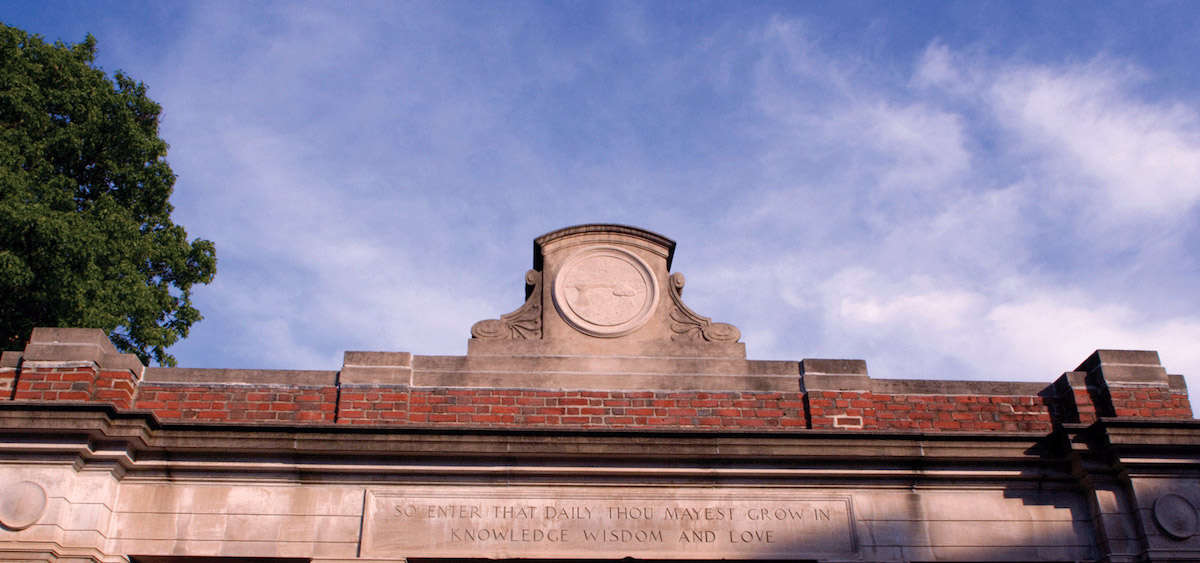News

Escobedo Case: Attorneys Spar Over Witness, Another Begins Civil Rights Fight
By: Susan Tebben
Posted on:
Two lawyers are fighting over defamation claims related to OU English Professor Andrew Escobedo’s sexual harassment case, and another lawyer is planning a civil rights case to address the culture he says caused Escobedo’s alleged actions.
Just before faculty members of the OU English department voted to consider Professor Andrew Escobedo’s termination, lawyers for Escobedo and a member of the faculty traded cease and desist letters.
The faculty member was also a witness in the OU Office of Equity and Civil Rights Compliance’s (ECRC) investigation of multiple claims of sexual harassment against Escobedo. The ECRC released a Memorandum of Findings in December that concluded he had “engaged in a pattern of exploiting females who are subordinate to (him) by virtue of their student status or their junior employment status.”
In a letter obtained by WOUB, the witness’ attorney, Adam J. Baker, addressed a statement written by Escobedo to faculty on Jan. 31.
In his statement, Escobedo named both the witness and the woman who had allegedly been harassed by him, and questioned the credibility of the witness’ statements.
The witness told ECRC about sexual harassment she said she had witnessed at a fraternity party in June 2004. ECRC stated in its investigation that the witness did not want to provide the alleged victim’s name in initial conversations with ECRC.
The witness eventually provided the name, but when contacted by ECRC, the woman denied that Escobedo had done anything wrong.
“A reasonable interpretation of (the witness’) action is that she was trying to extend the pattern of harassment to include undergraduate students,” Escobedo wrote in his statement to faculty.
Baker called Escobedo’s statements “libelous defamation of my client’s fine reputation” and argued they were retaliatory harassment under OU policy.
The attorney said the claims “will not be tolerated as well and will be reported to ECRC as retaliation.”
In a Feb. 6 response, Escobedo’s attorney, Emily Lewis, called the “assertions” in Baker’s letter “erroneous” because they were not sent directly to Escobedo, but disseminated to members of the English department.
“This wide dissemination unfairly prejudices Dr. Escobedo in the eyes of the faculty by undermining his reputation and credibility,” Lewis wrote.
Lewis also argues that Escobedo’s statements could not be found to be retaliatory because the statements he made were taken from the ECRC documents and were “factually correct.”
“The alleged victim denies that Dr. Escobedo engaged in any touching of her,” Lewis writes. “In fact, during her interview with Title IX (ECRC) investigators, she described her interactions with Dr. Escobedo as ‘pleasant.'”
The faculty voted on Feb. 7, with 24 faculty members agreeing that Escobedo should face sanctions for his actions. In another vote, 14 faculty members said he should be considered for termination and/or loss of tenure, according to a summary of the meeting provided to WOUB through a public records request.
Escobedo is currently waiting to hear a decision on his job and his tenure with the university. A letter explaining the vote by faculty was sent to Executive Vice President and Provost Pam Benoit by Robert Frank, Dean of the College of Arts and Sciences.
Benoit has 30 days to respond to the letter. Her decision will then be sent to the president of OU, and to the OU Board of Trustees for approval, according to university spokesperson Carly Leatherwood.
Adding to the legal fights for Escobedo, Chicago-based attorney Michael Fradin, is pursuing a civil rights lawsuit against Escobedo on behalf of two of the complainants in the investigation.
Fradin told WOUB on Thursday that the case would not only take on the case of two graduate students against Escobedo, but would also address what he called a “systematic” culture within the English department that led to Escobedo’s actions.

